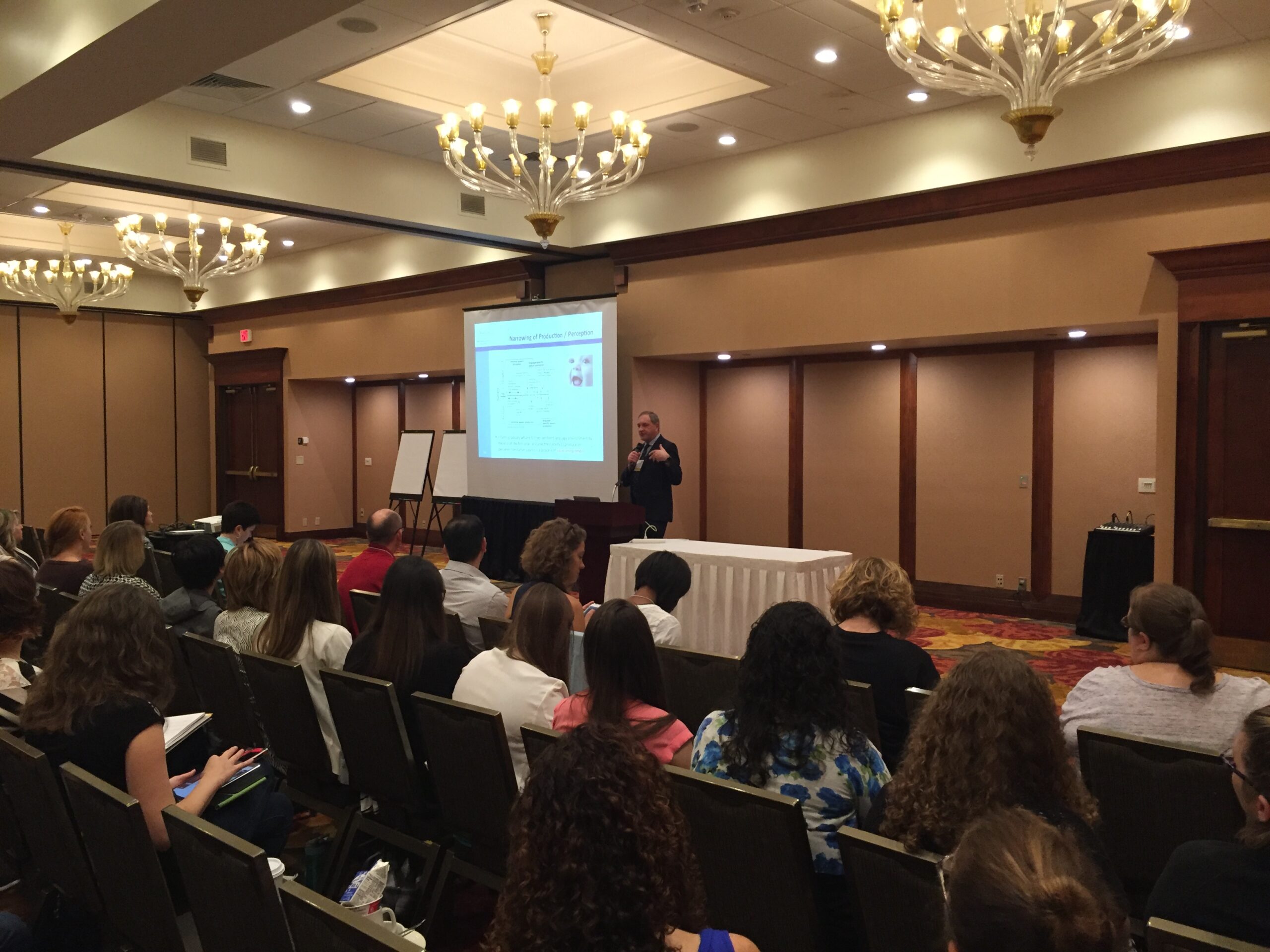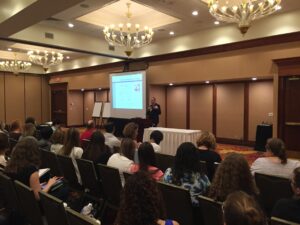Autism Conference offers key takeaways for parents, teachers and other professionals
By Adrienne Cornwall
During the last week of September, the University of Missouri’s Thompson Center for Autism and Neurodevelopmental Disorders hosted a two-day conference on the current health, education and behavioral research and practices in autism at the DoubleTree St. Louis Hotel in Chesterfield.
Here are our highlights:
Genetic research is leading to the development of individualized medical treatments. Keynote speakers Dr. Antonio Hardan of Stanford University and Dr. Raphael Bernier of Seattle Children’s Hospital Autism Center offered snapshots of the state of genetic research and neuroscience related to autism. Bernier also shared some early findings of his genetics research, which is focused on identifying common genetic variations in individuals with autism. Two such variations work on identifiable neural pathways that regulate the activity of certain neurochemicals in the brain. By offering specific medications known to act on that pathway, Bernier has found some success in his clinic with alleviating certain behavioral symptoms with these individualized treatments based on the patient’s genetic variation. The two genetic variations he has identified account for only about 20 percent of autism patients in his research studies, and about 50 percent of autism cases in his research groups have been associated with a known genetic variation. While full-scale clinical trials have not begun, Bernier concluded that individualized treatment for autism spectrum disorders based on genetic and biological makeup will complement current best practices in behavioral therapy as the future of autism care.
“We’re not there yet, but that’s where we’re headed,” Bernier said.
- Keeping kids safe takes a village.
On the eve of the conference, a panel of experts from the Thompson Center, including Executive Director Dr. Stephen Kanne, behavior expert Dr. SungWoo Kahng, and training expert Anna Laakman, joined Bernier and Dr. John Mantovani, director of the Mercy Kids Autism Center in St. Louis, to field questions submitted by parents and family members.
One primary area of interest for parents was safety, which is understandable considering that nearly half of all children with autism will wander. Training Core Administrator Anna Laakman had several tips for parents in the audience. First, plan ahead: Let local law enforcement, neighbors and others in your community know about your child and his or her preferred environments – often the first places a wandering child might seek. Second, invest in an identification system for your child, whether it’s an ID card (a version is available at nationalautismassociation.org) or temporary tattoos with emergency contact information. Finally, Laakman recommended that all families teach their children to swim. Children with autism are particularly drawn to water – lakes, oceans, ponds, fountains, pools, and retention ponds – and knowing how to swim can save the child’s life. Some online safety resources for families include the Big Red Safety Box and the 100 Day Toolkit from Autism Speaks.
- Teachers should include measurable autism-specific goals in a collaborative IEP process with parents.
Lisa Ruble from the University of Kentucky presented key elements of effective educational programs for children with autism for teachers to incorporate into classroom. Her suggestions, which are based on a model she and her peers developed call COMPASS, include setting objective, measurable goals to improve students’ performance in areas specific to autism, such as social communication, adaptive skills, and learning and work behavior skills. She recommended collaborating with families to incorporate evidence-based practices into setting specific, measurable goals on individual education plans that serve each student’s unique needs. Resources for applying these recommendations to classrooms can be found through the National Professional Development Center, Ohio Center for Autism and Low Incidence, and the National Autism Center. The Thompson Center also offers free educator training in individual classrooms or district-wide through the TEAM program funded by the state. Training for other professionals, such as health providers, emergency responders, caregivers and applied behavior analysts, is also provided through TEAM and other programs at the Thompson Center.
- Understand the differences between autism and similar disorders to get kids the right services.
Pediatrician Gretchen Meyer, director of Mercy Kids Autism Services, shared her insight on differentiating between a diagnosis of autism versus other disorders that share some overlap in symptoms, such as ADHD, anxiety, speech and hearing difficulties, learning disabilities, oppositional-defiant disorder or social communication disorder. To meet diagnostic criteria for autism, individuals must have deficits in both the social communication and interaction domain as well as restricted interests and/or repetitive behaviors. Many other diagnoses include some similar symptoms in these areas, but the presence of other symptoms or the lack of the other required deficits for an autism diagnosis make another diagnosis more appropriate. So, often children may meet some but not all criteria for autism. Differentiating between these disorders can help specialists treat patients more appropriately, and other disorders should be considered and ruled out. By understanding the true distinguishing symptoms of autism, Meyer hopes that teachers, parents and other health providers can make more accurate referrals to help children sooner with an appropriate diagnosis and relevant services. The Thompson Center offers a free online training module that walks through the screening process and diagnostic criteria for those who are interest.



